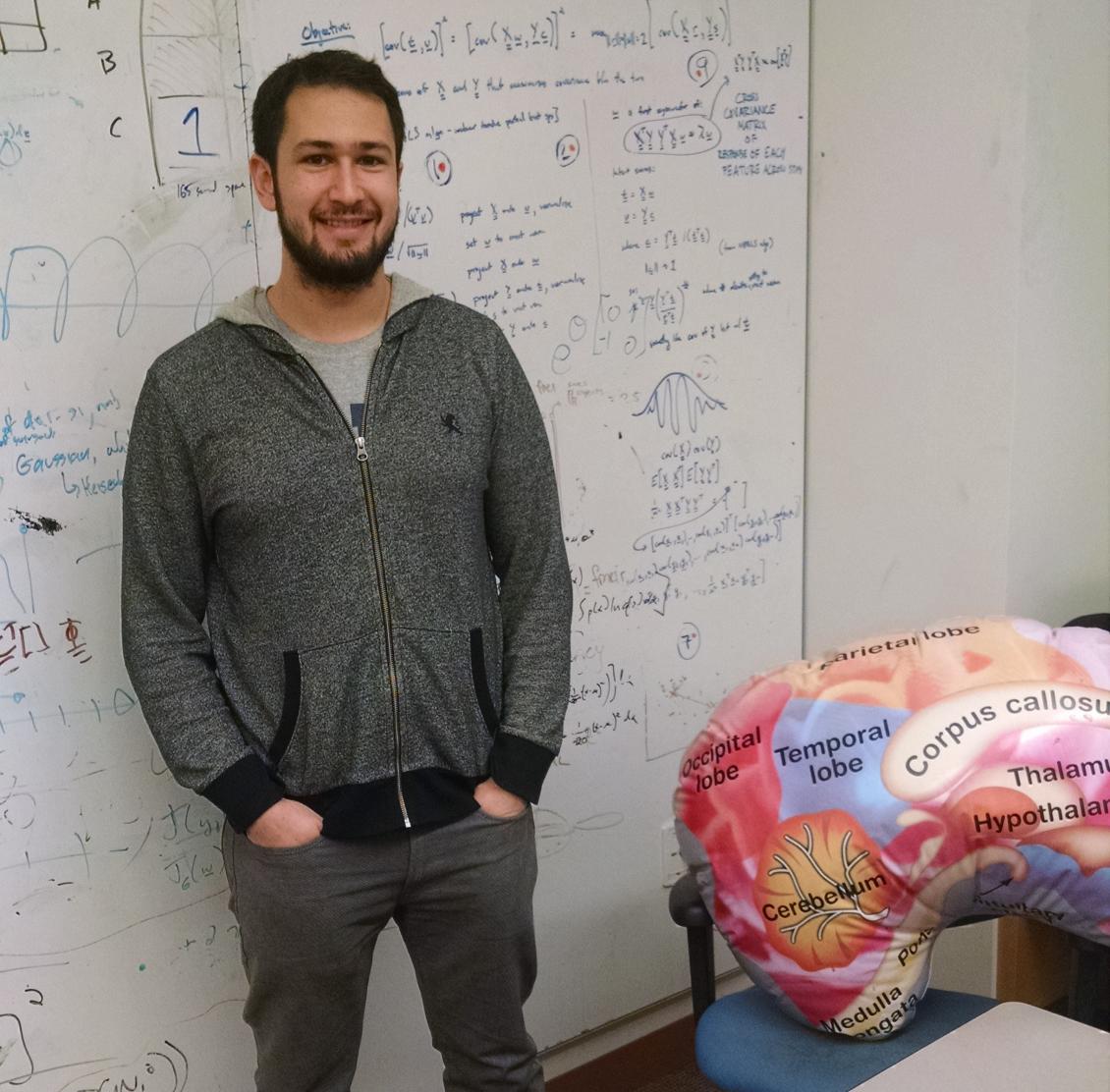In his own words: BCS graduate student Ben Deen studies abstract inferences

I am a neuroscientist motivated by cognitive science questions. While my main interest is in how the brain works, and how it achieves various computations, I anchor my research in the questions from cognitive science, focusing on two broad thrusts: 1) How do we make abstract inferences about people’s thoughts and intentions based on their face and body language, vocalizations, and other social cues? The translation of concrete perceptual inputs such as these into high-level social properties is a fascinating but difficult problem. 2) There are regions in the adult brain dedicated to specific cognitive and perceptual processes, including visual regions that process specific categories of input, such as faces. How do these regions (and the corresponding processes) develop? Are we hardwired to have these regions, or do we have them because (e.g.) we see faces all the time?
I’ve tried to discover the answer to this second set of questions through the study of infant development using functional MRI. fMRI is very sensitive to head motion, which has been a big challenge with babies. In order to get sufficient high-quality data, I’ve run many, many scans of babies over the last few years. I then worked to develop sophisticated data analysis techniques to extract a meaningful signal from this noisy data. We found that to a good extent infants do have the category-sensitive visual regions that adults have, including regions preferring faces to other types of input. It was very exciting because it was not at all clear that this would be the case – many scientists still consider the cortex of infants to be largely a blank slate. We were able to ask a broad and deep question and get a satisfying answer.
My research interests lie at the intersection of the Saxe and Kanwisher laboratories. While I applied to a few places outside of MIT for graduate school, I was very excited about their work. I heard wonderful things about both Nancy Kanwisher and Rebecca Saxe before I arrived at MIT, which have been borne out by my personal experiences in their labs. In addition to their scientific excellence, they are great people, excellent advisors, and are researching fascinating questions.
My advice to new graduate students, or potential grad students, would be to think very carefully about your research question. It’s probably the most important thing you will address in grad school, and relates to everything else, from how you will spend your days to whom you choose as your advisor. Get a broad sense of what is available and find what motivates you the most. Graduate school is an incredible amount of work, and you need to pick something that will motivate you to work hard and provide opportunity for discovery, both personal and scientific.

